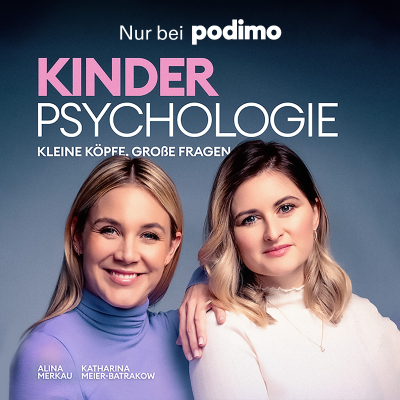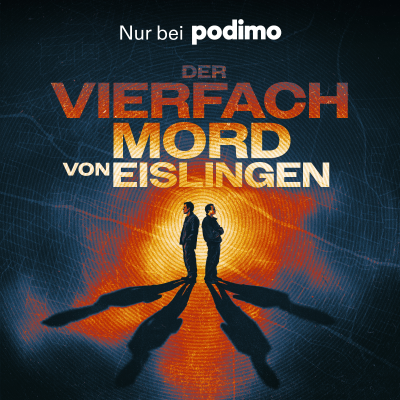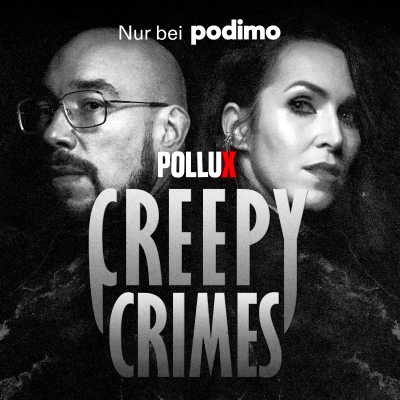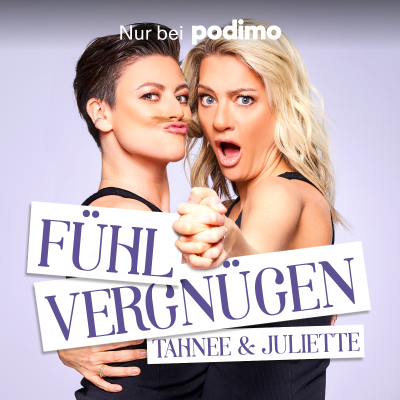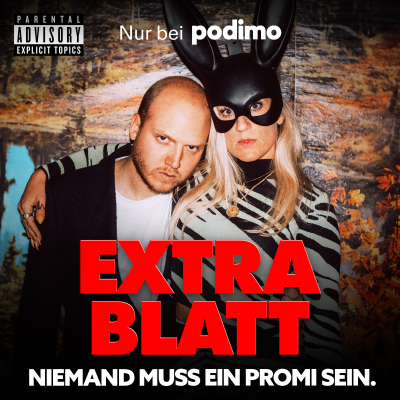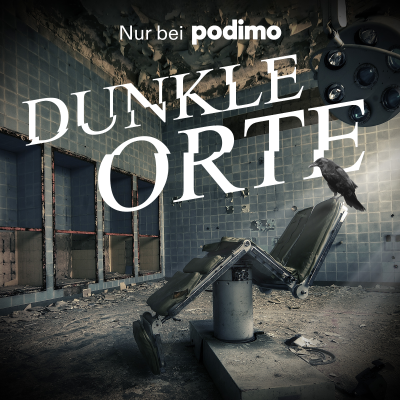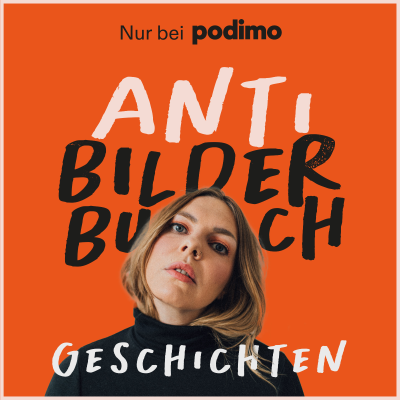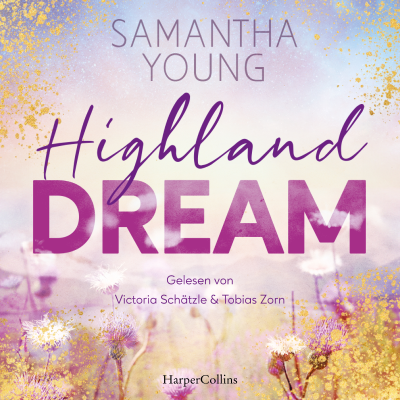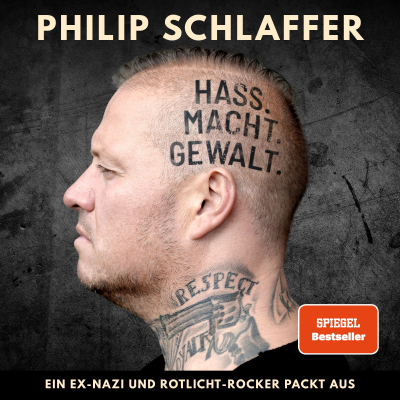
Talking Europe: The UCL European Institute podcast
Englisch
Kostenlos bei Podimo
Kostenlos hören bei Podimo
Starte jetzt und verbinde dich mit deinen Lieblingspodcaster*innen
- Vertraut von über 1 Mio. deutschen Hörer*innen
- Über 1.000 lokale Podcasts und Shows – nur bei Podimo
- Keine Zahlung nötig
Mehr Talking Europe: The UCL European Institute podcast
The UCL European Institute, University College London's hub for research, engagement and teaching on Europe
Alle Folgen
48 FolgenThe Ukraine Shelf Episode 5: Food with Olia Hercules and Felicity Spector
In this episode, we talk about one of the most fundamental things in all our lives: food. How can food help us understand culture, identity, and history? How does food bring people together in dark times? How has Ukraine’s status as a major global exporter of food been affected by the war? We discuss all these questions and more with two brilliant food writers - Olia Hercules and Felicity Spector. Olia Hercules is a British-Ukrainian chef, author and cultural ambassador, she is the author of Mamushka: Recipes From Ukraine & Beyond; Kaukasis: The Cookbook – A Journey Through the Wild East; Summer Kitchens Inside Ukraine's Hidden Places of Cooking and Sanctuary; Home Food and most recently Strong Roots: A Ukrainian Family Story of War, Exile and Hope (Bloomsbury, 2025). Felicity Spector is a journalist, author and baker. Her work in TV journalism has taken her all over the world, covering everything from the Velvet Revolution in Czechoslovakia to the inauguration of Barack Obama in the US; most recently, she has been a tireless volunteer in some of Ukraine’s most war-torn regions. Her book about these experiences, Bread and War: A Ukrainian Story of Food, Bravery and Hope, was published in 2025 by Duckworth. Book recommendations: Olia Hercules: Lesya Ukrainka, The Noblewoman, translation. Percival Cundy, in Spirit of Flame: A Collection of the Works of Lesya Ukrainka (Bookman Associates, 1950). Translation available online here. Charlotte Shevchenko-Knight, Food for the Dead (Penguin, 2024) Lina Kostenko’s poetry (See here for some translations by Uilleam Blacker at Words Without Borders) Felicity Spector: Oleksandr Mykhed, The Language of War translation. Maryna Gibson, Hanna Leliv and Abby Devar (Penguin, 2024) Artur Dron, We Were Here, transl. Yuliya Musakovska (Jantar, 2024) Victoria Belim, The Rooster House (Virago, 2023) Also mentioned: Lesya Ukrainka, Cassandra trans. Nina Murray (Harvard, 2024) Oleksandr Mykhed, I Will Mix Your Blood with Coal transl. Tanya Savchynska and David Mossop (Northwestern University Press, 2025) Links The UCL European Institute Ukraine Shelf: https://www.ucl.ac.uk/european-instit... UCL European Institute newsletter: https://ucl.us5.list-manage.com/subsc... UCL European Institute instagram: ucl_ei UCL European Institute BlueSky: https://bsky.app/profile/uclei.bsky.social Ukrainian Institute London: https://uil.org.uk
Talking Europe | Finding Europe on London’s Streets: understanding the enduring ties between London and the European Literary imagination
This episode of Talking Europe focuses on a unique literary project that underscores the enduring cultural ties between the UK and the rest of the European continent: the interactive, online European Literary Map of London devised by University College London's European Institute. Highlighting London’s relevance for European culture and in particular for European writers. Dr Uta Staiger Director of the UCL European Institute and curator of the project discusses the project and the wider relationship of London and European Literature with European authors Ciara Broderick (Ireland), Nisrine Mbarki (The Netherlands), Domas Raibys (Lithuania) and Iryna Shuvalova (Ukraine) and her UCL colleague, Lucy Shackleton.
European Literary London: Irish Writing, Language and Identity
In this episode of our podcast 'Talking Europe', Hayley Anderson, one of our 2024-25 Student Ambassadors, sits down with Ciara Broderick, the UCL 2025 European Literary Map of London Writer in Residence. Their conversation delves into Ciara’s journey as a writer, her experiences settling into London, and the creative process behind her upcoming short story for the Literary Map. Together, they explore themes of writing, language, and identity—examining how the Irish language shapes both Ciara’s work and her sense of self. This episode was produced in collaboration with the UCL Platform for Linguistic and Epistemic Justice (PLEJ). PLEJ is a research centre based at UCL's School of Slavonic and East European Studies. Its focus is to place socio-cultural linguistic research front and centre among the interdisciplinary areas of enquiry with social impact at SSEES, UCL, and beyond. About our guests Ciara Broderick Irish prose and poetry writer Ciara Broderick is our 24/25 Writer in Residence. Ciara's work has been published in several Irish and international journals and in 2025 her first novel was selected as a winner of the Irish Writers Centre Novel Fair. During her four-week residency in London, Ciara has been based at UCL Faculty of Arts & Humanities and engaged closely with UCL academics and students, participated in various related events, and pursued her own writing. Hayley Anderson Hayley is one of the Student Ambassadors at the UCL Europe Institute for 2024/25. She is a fourth-year European Social and Political Studies student. With her specialism in Hungarian and History, she has focussed her research on the experiences and identities of communities in Eastern Slovakia and the wider Central East Europe region.
The Ukraine Shelf Episode 4: Writing War and Trauma
How can we speak and write about war? What role does silence play in this process? What does it mean for people and places to survive war? We discussed these questions and more with two brilliant writers, Maria Tumarkin and Yuliya Musakovska, whose works have interrogated war and trauma in uncompromisingly honest and perceptive ways. For more information, visit our webpage: https://www.ucl.ac.uk/european-institute/ukraine-shelf-episode-4-writing-war-and-trauma
The Ukraine Shelf Episode 3: Eastern Ukraine with Olena Stiazhkina and Victoria Donovan
In this episode, we explore the industrial regions of Donetsk and Luhansk. From 2014 until 2022, this was where Russia focused its war of aggression against Ukraine, killing and uprooting thousands of people. Russia claimed these regions were culturally and historically Russian, but history, and the people of these regions themselves, tell a different story: the majority consider themselves Ukrainian, and they overwhelmingly voted for Ukrainian independence in 1991. To get a better understanding of this region’s complex identities and its history as a resource-rich region on the edge of empire, we spoke to Professor Victoria Donovan of the University of St Andrews about her book Life in Spite of Everything (Daunt Books, 2025) and to historian and novelist Olena Stiazhkina about her novel Cecil the Lion Had to Die (Harvard, 2024). More here: https://www.ucl.ac.uk/european-institute/ukraine-shelf-episode-3-eastern-ukraine-olena-stiazhkina-and-victoria-donovan
